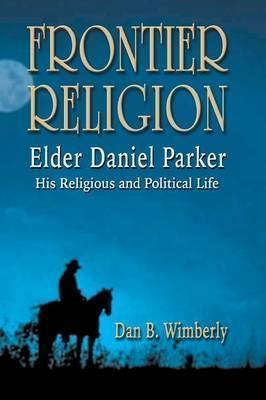Imbibing the promise of Jeffersonian egalitarianism, some Americans in the early nineteenth century sought to gain positions of leadership in politics and religion. Born in 1781, Daniel Parker was such a leader. A controversial figure among frontier Baptists in Tennessee, Illinois, and Texas, he also achieved political prominence. From 1822 to 1826 Parker held a seat in the Illinois Assembly. After immigrating to Texas, he became an acquaintance of Sam Houston and sat in the Texas Provisional Government during the Texas Revolution. As an Illinois assemblyman, he staunchly resisted attempts of slaveholders to open Illinois to slavery. But while serving in the Texas Provisional Government he sat on a committee that favored the re-enslavement of free African-Americans. In Texas parker encountered the trials of frontier life. Some of his family members became victims of the famed Fort Parker massacre of 1836. Parker was also a minister. In 1834 he led a Baptist congregation into Texas, the church being formed en route from Illinois. This was the first organized Baptist church in Texas. In church polity and politics Parker advocated republicanism. Yet inconsistencies and controversies surrounded him. He advocated doctrinal purity among Baptists but conceived and propounded Two Seedism, a hyper-Calvinistic homespun theology. Two Seedism created a stir among Baptists and caused Parker to lose support among Baptists in western states. A believer in the autonomy of the local church, he sought to remove Baptist congregations from the influence of New England-based mission boards. His stand on this issue resulted in division among his fellow denominationalists. About the Author: Dan B. Wimberly is a native of Louisiana and a graduate of Louisiana College. He holds a M.A. in history from the University of Texas at Tyler and a Ph.D. in history and political science from Texas Tech University. Before pursuing a doctorate, he taught social studies, French, and music at the secondary level. His doctoral emphasis was nineteenth-century America. Since 1996 he has taught history and political science at Bartlesville Wesleyan College.












